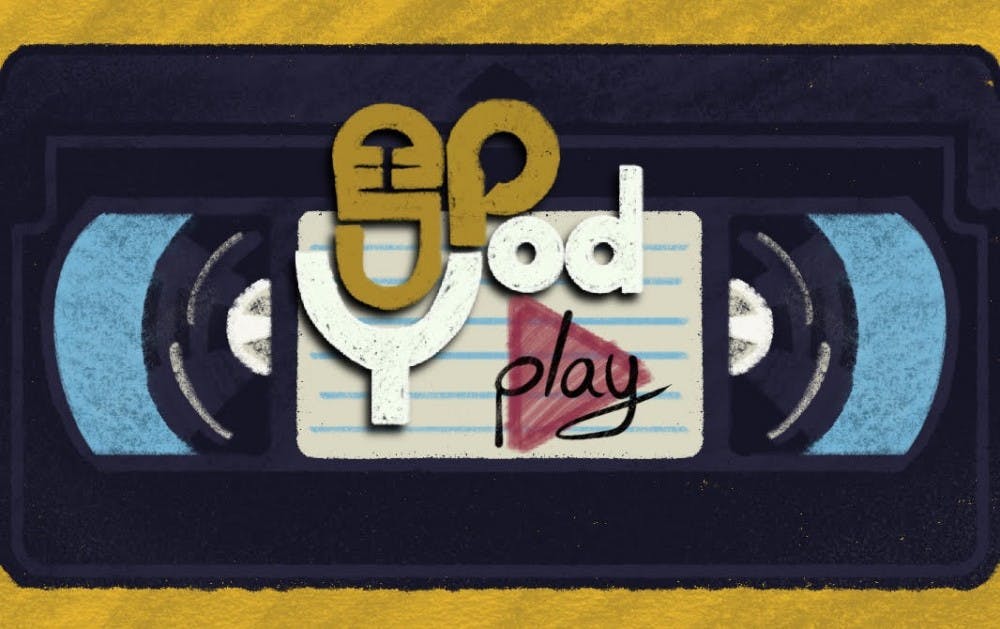In this episode of State Press Play, podcaster Mackenzie Marchello discusses with professor and seasoned Tarot card reader, Hannah Irene Walsh, the practical academic applications of Tarot cards. They focus specifically, on the explanation of what the Tarot is and how it can benefit students at ASU.
Mackenzie Marchello: Often times when people hear words like "tarot" or "spiritualism," they think of mystical fortune tellers or evil witches casting spells on their enemies. Well, much, to everyone's surprise, the Tarot isn't actually used to predict your future, and instead could actually benefit you academically. As students, we are constantly faced with difficult decisions that seem almost impossible to make. ASU does its best to encourage and guide students. But what if I told you they may even be encouraging us in a more unorthodox way?
Hannah Walsh: Hello my name is Hannah Walsh. I graduated from ASU, 2017, Master of Fine Arts in Drawing and Painting. I've been teaching at Maricopa Community College for the past two years since I graduated. I just started teaching back at ASU again this previous semester, where I taught Honors 394 with Dr. Giner — Myth and Mysteries of the Tarot.
Mackenzie Marchello: Can you explain to me what the Tarot is and how people use it?
Hannah Walsh: My first Tarot deck was the Rider-Waite-Smith and I had that in high school, and I tried to learn it by memorizing each individual meaning and that was the wrong way to go about it. Cut to maybe five years later, I saw it as a greater system.
There's four suits, and then the Major Arcana represent archetypes. But overall it is kind of a chronicle of the individual starting from their innocent, nascent self and then transforming and maturing and encountering these different figures archetypes, and then eventually assimilating and becoming one with the world.
Any card in that deck could apply to you and your life in some way. It's just a matter of juxtaposition and intensity. Any card could apply to you but just in varying degrees of relevance, and it gets you making these connections between aspects of your life that they may relate to one another, that you had not thought before, that they were connected in any way.
Mackenzie Marchello: It's kind of a way for you to explore what you already know?
Hannah Walsh: Yeah exactly.
Mackenzie Marchello: From that academic perspective, do you see the Tarot as being something intellectual something you could use every day or in a way that benefits you?
Hannah Walsh: The Tarot in particular, I think is a really intellectual tool. My friend and I have been doing Café Tarot in Downtown Phoenix for the past couple of years. That has been really critical in building community in Phoenix and teaching people how to use this tool to develop themselves as a tool for reflection and introspection.
It is a very intellectual thing. It's not all this “woo-woo hocus pocus New Age stuff.” And I really loved Dr. Giner's tarot class because he took an intellectual approach but also a very poetic approach, he would use samples from literature and I thought that was fantastic.
I actually taught a summer course in the School of Art, and I had two students who were interested in the Tarot. I mentioned that I read, and they and I would have conversations about the structure of it, the foundations of it, like in alchemy and things like that. It's definitely a spiritual tool for nerds because there's so much that you can read about it and different ways to interpret it, and it is kind of a you know...
Mackenzie Marchello: Academic process?
Hannah Walsh: Yeah, It's academic and it's sociological and cultural. And it's also really great for visual literacy. I've been considering talking to someone in the School of Art about doing something Tarot related, because reading those cards means you have to read an image and read then understand the significance of a visual sign and the origins of it.
In teaching Honors 394, a lot of those students were not visually literate. They did not know how to read an image. I taught art history at community college, I would show a painting and I'd say, "what's happening in this image?" and I get crickets. It's like come on guys, there's a story being told with pictures. It's fairly obvious. You can read a meme, you can read a tarot card, you can read a painting.
Mackenzie Marchello: What do you think that the students who use the Tarot are actually looking for? Do you think they're looking for the academic application or are they looking to learn something about themselves or be reflective?
Hannah Walsh: Based on conversations I've had with students and people who are getting interested in Tarot, they're just looking for their own answers. And I think a lot of people are looking for their own answers these days. It seems like Millennials and Gen Z kids are cynical and skeptical, and a little tired of everything that's going on in the world.
We've come to know our establishment and our institutions and even our own parents, just this lingering doubt of...oh, maybe people that are older than us, and these traditions and rituals that have been going on for centuries, don't have all the answers.
There's this desire to go on a quest individual quest. And that is the Hero's Journey, which the Tarot of course embodies. I think the Tarot is kind of a perfect reflection of what the individual's after in the 21st century.
Mackenzie Marchello: For the State Press, I'm Mackenzie Marchello.
Reach the reporter at mmarchel@asu.edu and on Twitter @kenzieenm.
Like State Press on Facebook and follow @statepress on Twitter.




